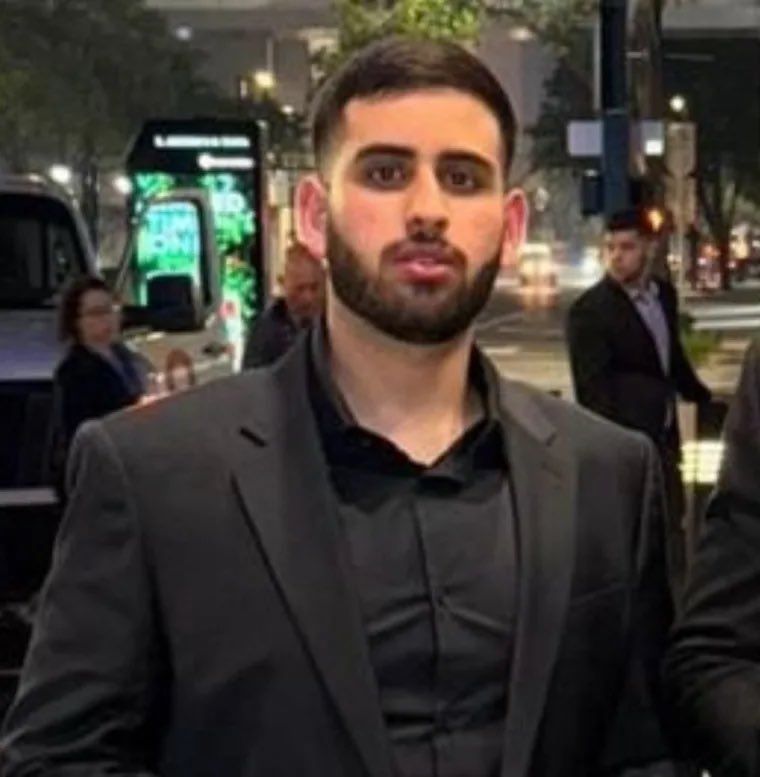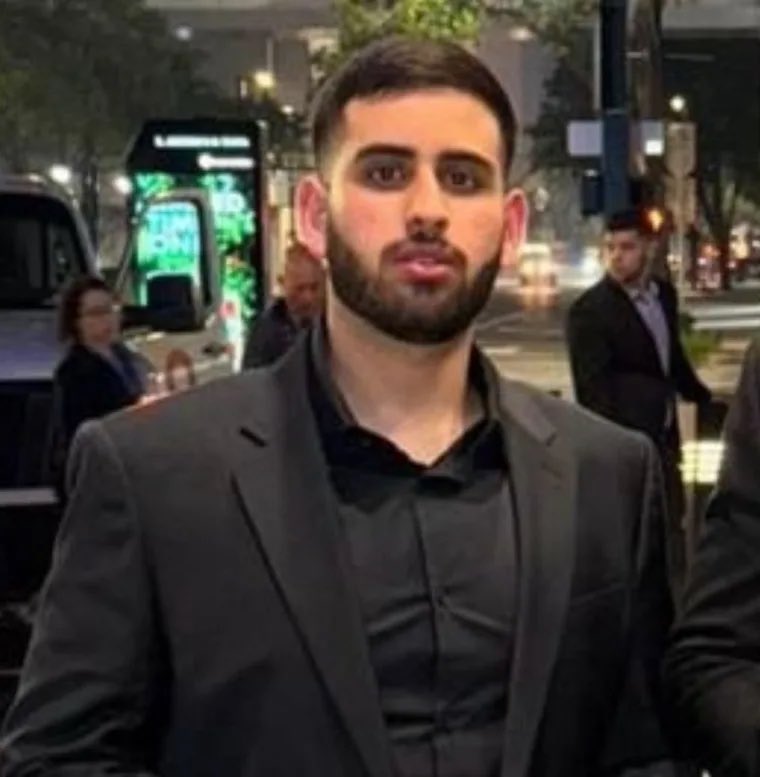
20-year-old Palestinian-American Saif Musallet was killed by Israeli settlers in West Bank. His family demands a U.S. investigation.
On July 11, 2025, 20-year-old Saif al-Din Kamel Musallet, an American citizen of Palestinian origin, was beaten to death by Israeli settlers in the occupied West Bank. The killing took place in Sinjil, a Palestinian village north of Ramallah, where Saif was staying with family for the summer.
Saif, originally from Tampa, Florida, was helping his relatives on their farmland when a group of Israeli settlers, reportedly armed with clubs and metal rods, launched a violent attack. According to eyewitnesses and family members, the settlers surrounded Saif and beat him brutally. The assault lasted over three hours. Witnesses also said that settlers blocked medical assistance, preventing emergency responders from reaching Saif in time. He died at the scene due to severe blunt force trauma.
In the same incident, another young Palestinian, Mohammed Rizq Hussein al-Shalabi, aged 23, was shot in the chest and left to bleed without medical help. His death was confirmed by the Palestinian Health Ministry.
Saif’s family has accused the Israeli settlers of premeditated murder. According to their statement, Saif was unarmed, had no involvement in politics or violence, and was simply defending his family’s land from settler intrusion. The Musallet family has demanded an independent U.S. investigation, insisting that the United States has a responsibility to ensure justice for its citizens abroad.
The U.S. State Department confirmed the incident and issued a brief statement expressing condolences. However, no commitment was made regarding an investigation or diplomatic action. A spokesperson stated, “We are aware of reports of the death of a U.S. citizen in the West Bank and are in contact with local authorities.”
According to reports in Israeli media, six settlers have been detained by Israeli police for questioning in connection with Saif’s killing. However, human rights groups remain unconvinced that the arrests will lead to justice. In past similar incidents, very few prosecutions or convictions have occurred, even in high-profile cases.
This is not the first time that a Palestinian-American has been killed in the occupied territories. Over the past two years, a noticeable increase in settler violence against Palestinians has been documented by both local and international human rights groups. The West Bank, especially near settlements, has seen a surge in assaults, arson, and land seizure attempts.
Organizations such as B’Tselem, Amnesty International, and Human Rights Watch have previously accused the Israeli government of failing to stop settler violence and, in many cases, shielding the perpetrators through legal loopholes or lack of investigation.
Video evidence and audio recordings related to the attack are reportedly being reviewed by both Palestinian and Israeli authorities. However, Saif’s family fears the case will be quietly closed without consequences, as has happened in other cases involving Palestinian victims.
Saif’s funeral was held in Sinjil with thousands in attendance. Family members, speaking publicly, said Saif had always wanted to visit Palestine to connect with his heritage and help his grandparents. He was a university student, loved reading, and was described by his cousin as “a calm, kind soul with no interest in conflict or hate.”
American lawmakers, particularly from the progressive wing of Congress, have started to raise questions about U.S. response. A few have called for a review of the $3.8 billion annual U.S. aid to Israel, urging accountability in the wake of repeated incidents involving the deaths of U.S. citizens.
Some Palestinian organizations in the U.S. have also planned vigils and protests, demanding that the Biden administration step in and push for criminal charges against the attackers. The Council on American-Islamic Relations (CAIR) released a statement saying, “If Saif had been a different kind of American citizen in a different part of the world, this would already be front-page news and met with diplomatic pressure.”
The Israeli government has not publicly commented on the case. The Israeli Defense Forces (IDF), which operates security in the area, has not acknowledged any fault or made public any official findings as of now. However, footage from the area suggests that settlers had entered Palestinian lands under IDF guard, which, if proven, could raise further questions about complicity or at least negligence.
The West Bank remains under a dual system of control — Israeli civil law applies to settlers, while Palestinians are subject to military law. This legal imbalance is at the heart of many cases of unpunished settler violence, according to rights groups.
Since the war in Gaza escalated in late 2023, settler attacks have dramatically increased. According to the United Nations, 2024 saw a record-high number of settler attacks, including assaults, property damage, and even arson of Palestinian homes and schools.
Saif Musallet’s death adds to a growing list of Palestinian-Americans killed or injured in recent years. Many of these cases have seen no justice, no convictions, and no real international pressure.
Saif’s parents, speaking through an attorney, have sent an official letter to the U.S. Embassy in Jerusalem and the State Department, asking for:
A U.S. consular inquiry into the death
Protection for the remaining family in Palestine
Sanctions or visa bans against the settlers involved
International media coverage and follow-up
They said, “We don’t want Saif to be another forgotten name. He was a U.S. citizen. He deserved better. We will not stop until those who killed him face justice.”
The U.S. ambassador to Israel has not yet visited the family or issued a statement beyond the one-line condolence from the State Department.
The legal process in Israel will now determine whether the settlers arrested will be charged. If not, the case could spark diplomatic tension and further public outrage.
The Musallet family, backed by several U.S.-based civil rights groups, plans to file a civil lawsuit in the United States under the Torture Victim Protection Act, a rare but possible legal avenue.
Saif’s death is now being used by human rights activists and Palestinian advocates as an example of why unchecked settler violence cannot be ignored anymore. Whether or not justice is served in this case, it has already triggered a renewed wave of questions about the safety of Palestinian-Americans in the West Bank.
As of now, no date has been announced for formal charges or indictments in Saif’s case. The FBI has also declined to comment when asked whether it would open a separate investigation.

